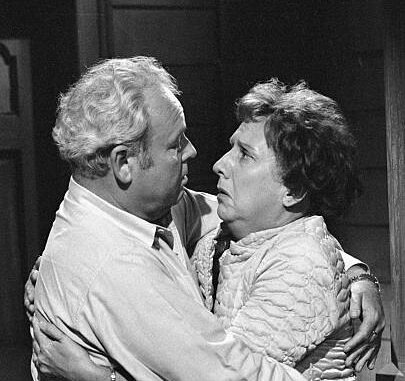
Norman Lear’s death at 101 this week has prompted an outpouring of tributes to the legendary television pioneer, with many reflecting on the lasting impact his shows—All in the Family, The Jeffersons, Maude, and others—had on the cultural and political landscape of TV. Lear’s programming was revolutionary in its ability to address complex social issues—racism, sexism, and class struggles—through the lens of humor, making uncomfortable truths more digestible for mainstream audiences. His series tackled topics that were previously considered taboo, using sharp satire and controversial characters like Archie Bunker to challenge viewers to confront their own biases. In many ways, Lear set the standard for what television could be: both entertaining and socially relevant, while pushing the boundaries of what was acceptable on the small screen.
Yet, as streaming services continue to dominate the modern entertainment landscape, many of Lear’s groundbreaking shows are noticeably absent. Aside from a few titles like Sanford & Son and Good Times streaming on Peacock and 227 on Hulu, most of Lear’s catalog remains locked away. This is in stark contrast to the enduring popularity of his shows on network television, with many of his series still airing regularly on multicast networks like Antenna TV and MeTV. These networks air everything from The Jeffersons to Diff’rent Strokes, keeping his legacy alive in the traditional television ecosystem, but streaming services have largely left his work in the dust. Shows like Mary Hartman, Mary Hartman, which was groundbreaking in its day, are nowhere to be found, leaving fans wondering why the creator who helped shape modern TV is largely absent from today’s digital platforms.
The reasons behind this absence may lie in the very edge that made Lear’s shows revolutionary in the first place. As one industry veteran explained, while Lear’s shows were groundbreaking for their time, many of their themes and characters, like the infamous Archie Bunker, whose casual use of racial slurs and inflammatory rhetoric was central to All in the Family, may not sit well with modern audiences. The very things that made these shows so powerful in the 1970s—confronting societal taboos head-on—could be seen as problematic today. In an era where sensitivity around issues of race, gender, and identity is heightened, streaming platforms may shy away from including shows that feature such raw and often offensive content, despite their cultural importance.
This challenge was seen in the reboot of One Day at a Time on Netflix, which Lear himself was involved in. The critically acclaimed series, which focused on a Cuban-American family, was praised for its representation and modern take on issues like immigration, LGBTQ+ rights, and mental health. However, despite strong reviews, the show was canceled after just three seasons, reportedly due to low viewership. Even with Lear’s involvement, the reboot didn’t attract the broad audience necessary to justify its continued existence, perhaps further underlining how contemporary streaming platforms, with their global reach and diverse audiences, struggle with balancing both content that speaks to a modern sensibility and the cultural resonance of older material.
The streaming world’s reluctance to embrace Lear’s full catalog might also be a case of missed opportunity. While Lear’s work is often available for purchase or through ad-supported platforms like Pluto TV, Freevee, and Tubi, these are not the prime destinations for premium subscription content. Streaming giants like Netflix, Amazon Prime Video, and Hulu tend to focus on newer, more universally palatable content, rather than taking risks on older shows that deal with potentially controversial subject matter. However, the rise of free, ad-supported streaming TV (FAST) networks, which have grown in popularity in recent years, could offer a new avenue for Lear’s catalog to thrive. FAST networks are growing rapidly and represent a sector that could benefit from a curated collection of Norman Lear’s iconic series, bringing them back to the forefront where they could once again provoke thought and stir conversation.
While the future of Lear’s catalog on streaming remains uncertain, his legacy in linear TV is safe for now. Networks like Antenna TV, MeTV, and TV One continue to air his shows regularly, keeping the conversation about Lear’s pioneering work alive. But in an era when streaming is the dominant platform for television consumption, it is hard not to wonder why Lear’s shows haven’t found a more prominent home in this new landscape. Perhaps the challenge lies in adapting shows that were once revolutionary for their time to a modern, more cautious audience—an audience that may be more willing to consume the message in a new format, but less willing to confront the raw, unapologetic truths that Lear’s shows once served up so boldly. As the TV landscape continues to evolve, it remains to be seen if Norman Lear’s timeless work will make the leap to streaming—or if, like so much of the past, it will remain anchored to the legacy of traditional TV.
